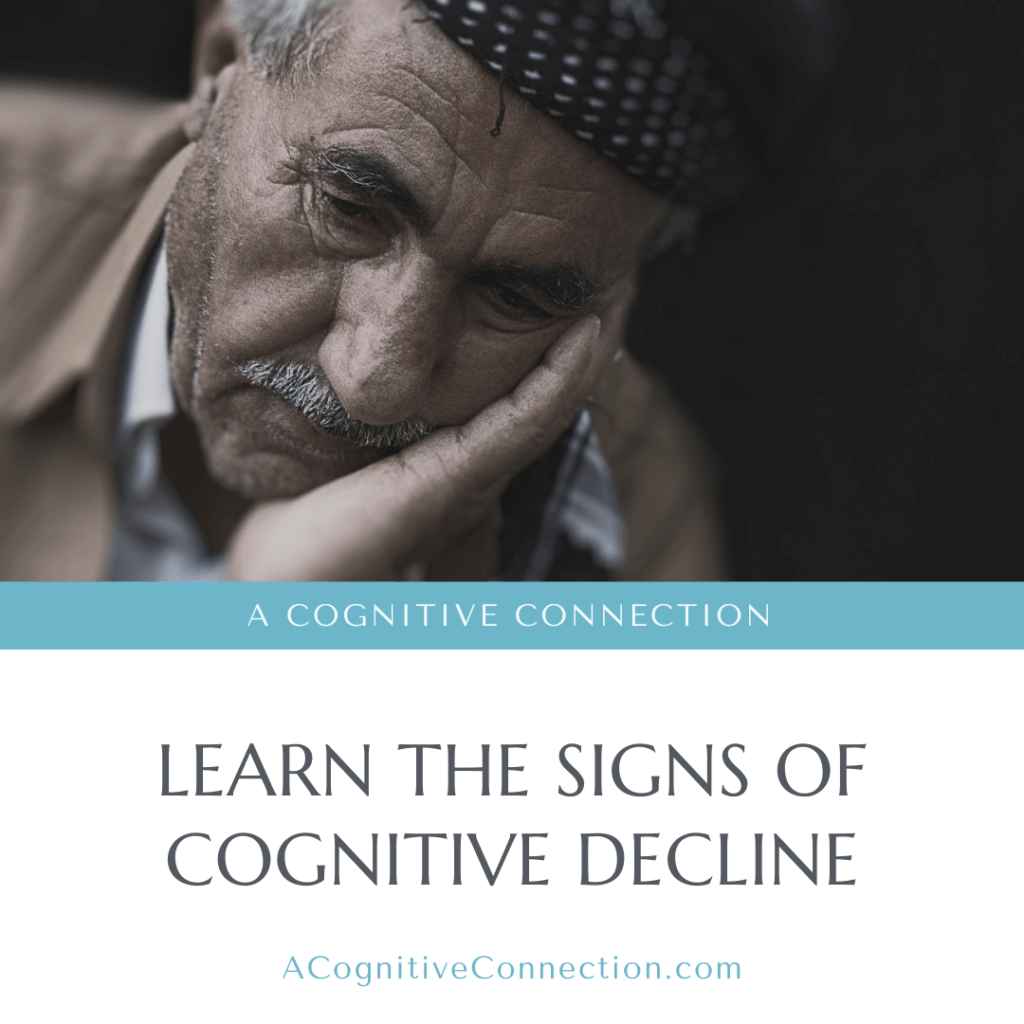At A Cognitive Connection, we’re committed to helping people understand why they act a certain way and say certain things. The more we understand our brains and our behaviors, the better equipped we are to take positive steps toward creating healthy patterns. As we age, one thing that begins to happen is our cognitive abilities begin to diminish. Although this is thought to be a normal sign of aging, it doesn’t have to be a part of our aging process. It’s important to be aware of this so that you can learn different ways to strengthen your brain and your cognitive skills. In order to help you recognize certain signs of cognitive decline, our team has put together a list of a few signs of diminished mental capacity.
4 Signs You May Be Experiencing Cognitive Decline
Although it’s completely normal to forget things from time to time or act out of character occasionally, if you begin to do these things regularly, chances are you’re beginning to experience cognitive decline. Some of the signs to look out for include:
- You can’t think of certain words.
- Cognitive decline almost always presents itself in our language abilities. If you’re constantly struggling to think of the right word or you feel like you don’t know what things are called anymore, it’s important to speak with a mental health professional right away.
- You no longer enjoy your hobbies.
- Did you know that no longer finding comfort in activities that you used to love, or being ready to give up an activity quickly, is reported in almost half of all dementia cases? If you find it hard to enjoy activities, hobbies or sports, make sure to talk to your health care professional and get an opinion on how your brain is functioning.
- You’re constantly worrying.
- While you may not think much of it, constantly worrying and being stressed out about each and every thing is a common sign of cognitive decline. The sooner you pinpoint why you’re worrying, the better chances you have at slowing down the speed at which your mind is declining. It’s important to remain calm whenever possible.
- You’ve been sick recently.
- Our mental deficiencies commonly portray themselves physically. When our brain is hurting and struggling to operate efficiently, it’s common for us to become sick and experience common illnesses one after the other.
Learn The Signs Of Cognitive Decline With A Cognitive Connection
Whether you want to keep an eye on your grandparents, or you’re beginning to experience things that are out of the ordinary and want to make sure it’s nothing worrisome, A Cognitive Connection’s team is here to help you learn different ways that cognitive decline may present itself. It’s important to remember that everyone is unique, and everyone can have different ways of showing cognitive decline. These are just some of the most common ways it usually ends up portraying itself. To learn more about cognitive abilities and why it’s important to continuously strengthen your brain, contact our team today!



